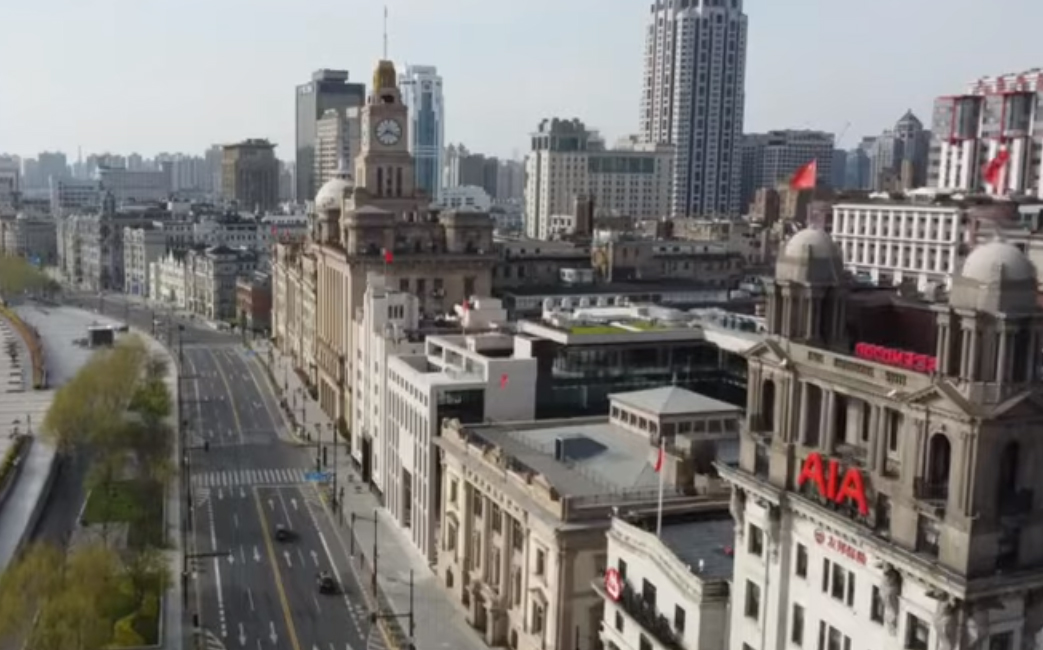Shanghai, a normally buzzing, dynamic city of 25 million, is in week three of an intense lockdown as part of President Xi Jinping’s desire to keep the country “Covid-Zero”. It’s buckling at the knees, so much so that they’ve had to ease measures in some areas. The desperation is in large part due to how mismanaged the lockdown has been. Shanghai authorities’ promises of providing necessities to those confined in their homes have not been kept, leaving many residents starving.
“Pets beaten to death. Parents forced to separate from their children. Elderly folks unable to access medical care. Locked-up residents chanting ‘we want to eat’ and ‘we want freedom’,” ran the lead in a Bloomberg article last week.
As anger bubbles over, the censors are working overtime.
The phrase “buying vegetables in Shanghai”, a video showing mountains of food waste, a post written by Ho Ching, wife of the prime minister of Singapore, calling the Shanghai lockdown “a waste of time, money, resources and opportunities” are just three examples of content that has been censored in the past few weeks in China.
“I am not particularly concerned about politics, and I believe many other ordinary people are the same. Most people just want a safe and comfortable land to live in.” The words of another netizen whose post was blocked. These words speak volumes. Shanghai residents’ desire to post, and particularly post under popular hashtags, isn’t necessarily about making a grand political statement. It’s about a sense of unity at a moment of desperation. It’s a cry for help. It’s a way to pool resources and offer tips.
The intense lockdown, and the government’s response to criticism of it, is deeply disturbing. At the same time it follows a depressingly familiar pattern. Beijing has been pursuing a draconian Covid control policy from the start and censorship has been the government’s bedfellow. Remember Li Wenliang, the Covid doctor who was hunted down for blowing the whistle on the virus?
The censorship we are seeing fits perfectly into the Chinese model that only allows for minimal criticism of policy from the top. And the posts, while not always directly pointed at senior leaders, clash with what they fear the most – collective action. As outlined in 2012 by a Harvard study of Chinese censorship any posts with a hint of collective intent are targeted. One example in this study came from Zhejiang Province. There, following the Japanese earthquake and the subsequent meltdown of the Fukushima nuclear plant, a rumour spread that iodine in salt would counteract radiation exposure. To offset a hectic dash to buy salt, all online content was removed. Yesterday’s iodine in salt is today’s vegetables in Shanghai.
Many are now too scared to speak online about their situation in case they get the dreaded knock on the door. They know the internet police are watching. Some have made the brave move to switch on a VPN, even though VPNs are banned in China. They really want to know exactly what is happening in their city, outside of their own four walls. Who can blame them? By this stage it’s confusing to even know what is happening in Shanghai on a purely clinical level because we simply can’t trust the numbers. Just how many people are currently ill? How effective is the Chinese vaccine against Omicron, and other variants for that matter? The official line says vaccine uptake among the most vulnerable has been low. Exactly how low?
Without knowledge of the real stats, it’s hard to see justification for the lockdown and harder still justification for such an extreme one. As for the blocking of posts related to it that’s condemnable no matter the content or circumstance. Ultimately it feels like we are watching an elaborate show of Xi’s stranglehold on the country. Perhaps that’s the point? This though is a view that can’t be shared on Weibo. Or at least not for long.






